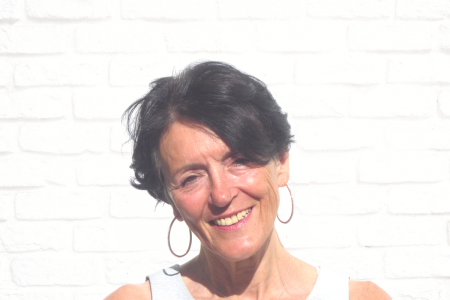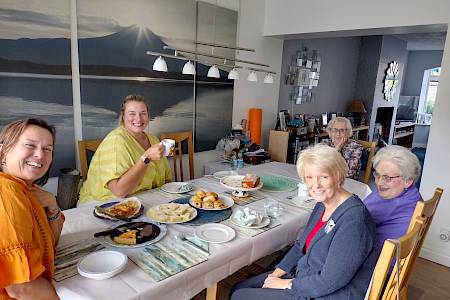Safeguarding can at times appear to be complex and challenging, but it doesn’t need to be. Safeguarding adults is simply about protecting a person’s right to live in safety, free from abuse and neglect.
Please read the scenario below and answer the questions that follow. You’ll find the answers at the bottom of the page.
Scenario
Tom joined Re-engage as a call companion volunteer and was paired with Frank. Frank is 85 years old and living in his own house. Frank has restricted mobility and carers visit him twice a day. Frank is an expressive person and a particularly good storyteller. Frank’s daughter referred him to Re-engage so that he could talk to someone during the week, and this is exactly what happened. Frank would talk about everything and anything with Tom, including telling stories from the past and talking about his family, carers and daily activities. It wasn’t difficult for Tom to get to know Frank. After a few weeks, Tom noticed that every time Frank mentioned the food that he was given by his carers, he only mentioned pot noodles and sandwiches. Tom asked Frank whether he was only ever given pot noodles and sandwiches and Frank replied yes. Tom was worried that Frank was being neglected by his carers as he didn’t think that Frank was being given nutritious food. Tom reported this as a safeguarding concern to Re-engage.
Questions
Do you think that Frank is experiencing abuse or neglect?
a. Yes
b. No
c. Possibly
What would you do if you were in Tom’s place? (More than one answer may apply)
a. I would report my concerns immediately to Re-engage.
b. I would ask Frank some more questions about food and the general care that he receives.
c. I wouldn’t do anything as it’s not my responsibility.
d. I would share my concerns with my call companion coordinator.
What are the common signs of neglect that Tom can look for in his conversations with Frank? (More than one answer may apply)
a. Look for any changes in Frank’s behaviour or voice or any sign that he is not his normal self.
b. Notice whether Frank’s health has deteriorated and he has had more hospital or GP visits.
c. Only focus on the assumptions that Frank’s diet is not well balanced.
Answers
Q1: c
Frank is not in immediate danger, but he may be neglected. However, we do not have enough information at this point to make a safeguarding referral.
Q2: b & d
It would be good practice for Tom to ask Frank some more questions about the food that he is being served and eating and whether he is being offered choices. If Tom is still worried, he should report his concerns to his call companion coordinator.
Q3: b & c
Tom hasn’t noticed any changes in Frank’s behaviour, or a mention of any serious health issues, in their regular chats. In fact, he realised that having pot noodles and sandwiches is a personal choice that is being respected by Frank’s carers.
Please refer to the Introduction to Safeguarding training for more information.
-
View
More news

Meet Re-engage volunteer Gaby
We caught up with call companion coordinator Gaby about volunteering for Re-engage and what makes her get out of bed every morning. As a call companion coordinator, it’s Gaby’s job to ensure that the six older people in her group receive regular phone calls from Re-engage volunteers.
By Re-engage

Meet Re-engage volunteer Alicia
Alicia is in her early 50's and lives in Saddleworth. She works full-time from home and has three grown up children and a dog that always wants to be walked. She has been volunteering for Re-engage for four years and is a tea party group coordinator, host and driver.
By Re-engage

